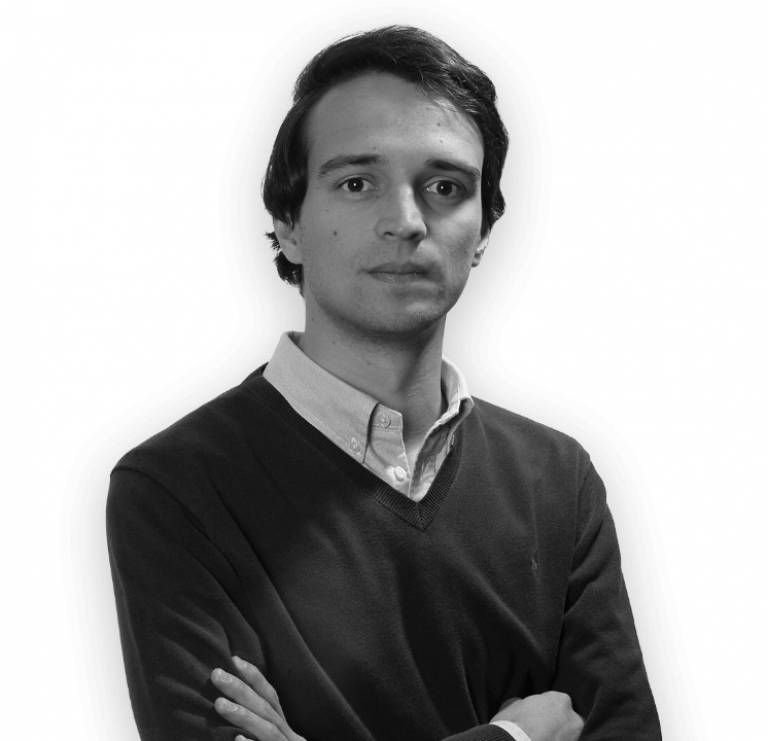UCL's Fernando Posada explains the political impact of former Colombian president Uribe's arrest
11 August 2020
For the first time in Colombian history, the Supreme Court has issued an order of house arrest to a former president. It is the case of Álvaro Uribe, elected president of Colombia 2002-2006. He reformed the national Constitution to be reelected for the period 2006-2010.

Fernando Posada recently had an article published by the largest Colombian newspaper, El Tiempo, after former president Alvaro Uribe was ordered under house arrest. In his article of August 10, 2020, he discusses five major political consequences and changes that this decision will bring to the Colombian national debate.
Former president Uribe remains to date one of the most popular Colombian presidents in modern history. However, links to paramilitarism and human rights abuses during his government have been documented and investigated by the Colombian justice in recent years.
On August 4th, the Colombian supreme Court issued an order of house arrest for former president –and currently senator– Uribe in a case that involves the faking of testimonies in his benefit in the context of an investigation of Uribe's possible link to the creation of a paramilitary group. The Court stated that Uribe could use his political power to change the course of the investigation against him, and ordered the restriction of his freedom during the following months of his defense in the case.
Fernando Posada, a Colombian political scientist and MSc Latin American Politics student at the UCL Institute of the Americas has published an opinion column for EL TIEMPO newspaper explaining that Uribe's arrest will have deep impact on the Colombian political arena. Click on the link to El Tiempo website (in Spanish only) to read the full article. Fernando has kindly provided a summary of the article content in English - here below:
"Uribe's arrest will undoubtly leave the weak government of Duque without his main voice of support in the national Congress. He will now have to strengthen his links with his own political party or build new alliances in Congress", explains Posada.
He also states in his opinion article that the peace treaty with the Farc guerrilla will be even more difficult to be implemented and supported by a wider range of citizens. In the recent years, a wide percentage of Colombians have rejected the peace treaty's benefits for the former members of Farc, and they will be less accepted now that Uribe will be arrested while members of the guerrilla are free, even if the two cases are widely different.
Another main impact of Uribe's arrest has been a large tension between the judiciary and executive branches of power. When the Court issued its order, president Iván Duque and some of the members of the government defended publicly and questioned the decision of the Court. In return the heads of the four main Colombian courts met and published a document demanding the national government to respect the independence of the judiciary branch.
"Far from defeating Uribismo", explains Posada, "this decision can radicalize the members of his party and allow them to regain political popularity under the allegation of being politically persecuted".
Fernando adds that one of the most dangerous political results of the Court's decision is the return of projects to reform the Court system in Colombia by Uribe's own party. Two paths have been proposed: members of Uribe's party in Congress defend a National Constituent Assembly, while others in his party and president Duque himself suggest a reform of justice to be a more appropriate path.
Posada concludes that both ideas are inconvenient, as they attempt to respond a decision of the Colombian judiciary branch by reforming it, rather than accepting it as should happen in any democracy. "Facing the threat of personalism and a reform to benefit an individual political leader, citizenship must defend its institutions and respect the decisions of its Courts", adds Posada.''
Fernando Posada is a Colombian political scientist and journalist. He studied his degree in Political Science at the Universidad de los Andes, Colombia. He has worked as a radio journalist at Colombian national radio, regular collaborator at Colombia's major TV network RCN, and is an opinion columnist for El Tiempo newspaper. His opinions and his analysis have been included in articles for different media across the world such as the BBC, The Times and El País. He is currently a student of the MSc Latin American Politics at UCL Institute of the Americas, where he is also a student representative.
Links:
- El Tiempo newspaper
- Link to Fernando Posada's article (in Spanish only)
- RCN Noticias website
- MSc Latin American Politics at UCL Americas
Image:
Courtesy of F Posada
 Close
Close

